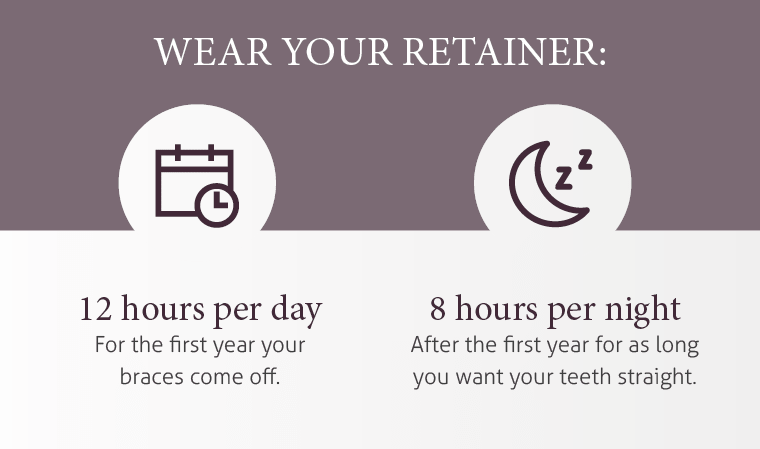
The day is finally here: Your braces come off! You’re ecstatic; your smile looks amazing (and straight!).
Now you are about to start the most important part of your orthodontic treatment: Wearing your retainer.
Reasons why you should wear a retainer
Retainers protect your investment. If you want to keep your gorgeous smile, you must wear your retainer every day, especially for the first year after braces come off.
When an orthodontist removes your braces, your smile will want to move back to its original position. To prevent teeth from moving and settling into their new position, a retainer must be worn consistently long term.
How long do you have to wear a retainer?
For as long as you want to keep your teeth straight, you must wear your retainer every night. For the first year, it’s recommended you wear your retainer for at least 12 hours a day. After that first year, you can wear your retainer about eight hours every night.
It’s also important to keep up with your retention appointments with your orthodontist – be sure to bring your retainer! This allows your orthodontist to check your retainer and smile to ensure your teeth haven’t shifted out of place. He or she can make adjustments to your retainer if necessary.
Take care of your retainer!
It’s important you keep your retainer clean every day! The easiest way is to brush it with a toothbrush under cold water.
Make sure you DON’T use these elements when cleaning your retainer:
- Hot water
- Alcohol
- Any type of household cleaner
By using these elements, you may distort or damage your retainer.
Want to keep your new smile?
Wear your retainer faithfully! Your teeth will relapse. It’s important to us you love your smile for life, and a retainer is the best solution to keep your new smile and investment. Be sure you schedule your retention appointments with your orthodontist and keep your teeth retained.
Are you faithful with your retainer? How long have you had one? How many times a week do you wear it? Share your story by commenting below!
The content of this blog is not intended to be a substitute for professional medical advice, diagnosis, or treatment. Always seek the advice of qualified health providers with questions you may have regarding medical conditions.
Re-posted with permission: source.
SaveSave







